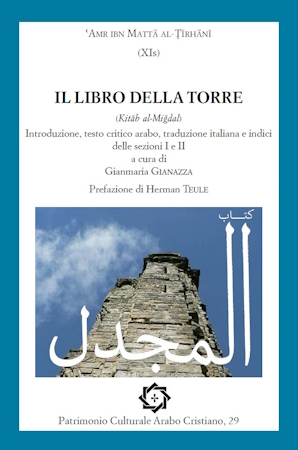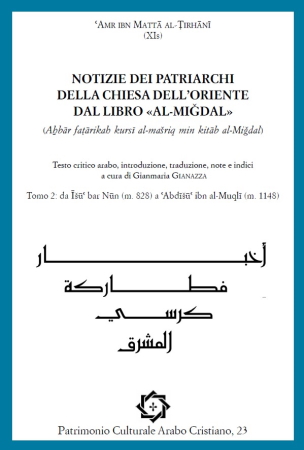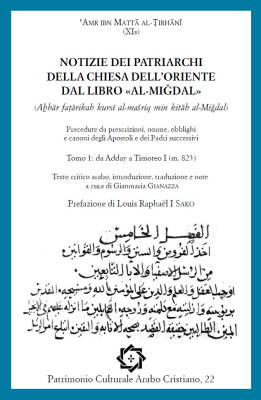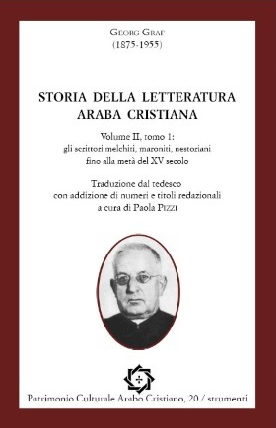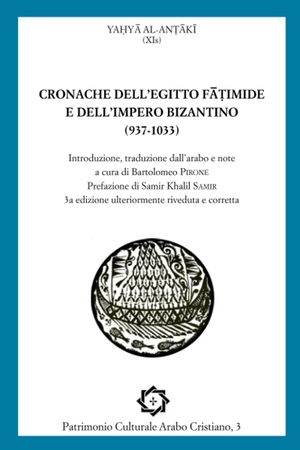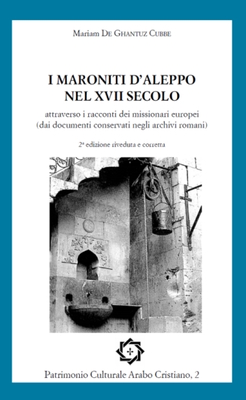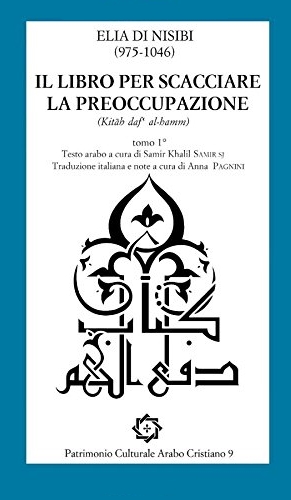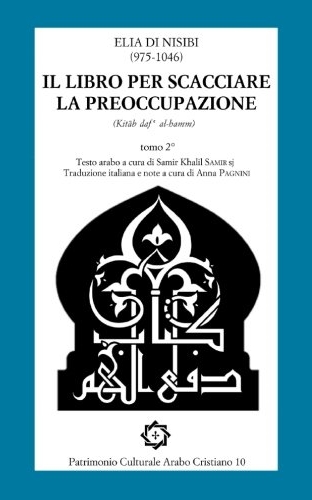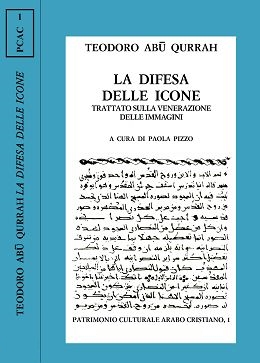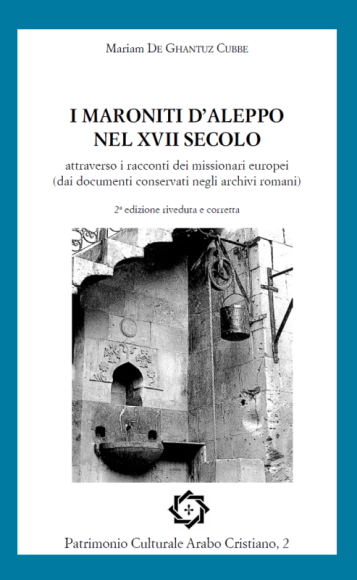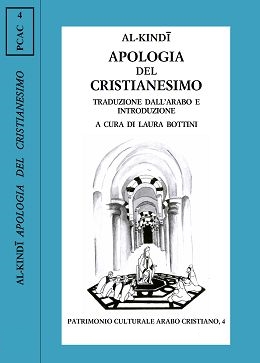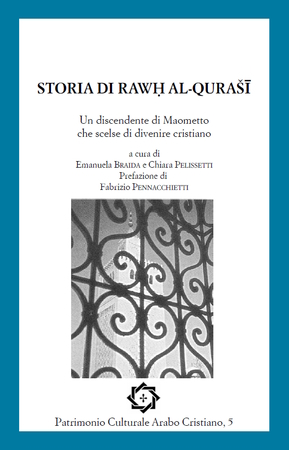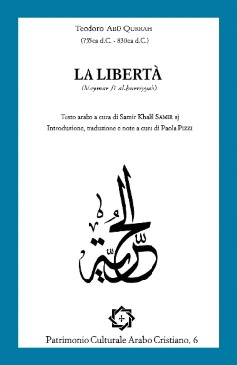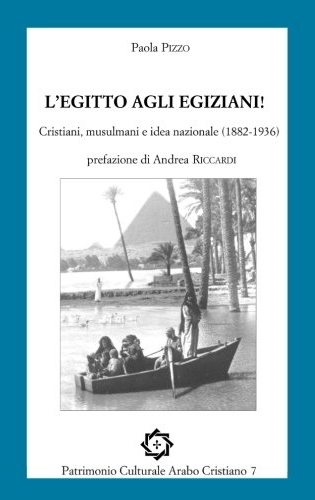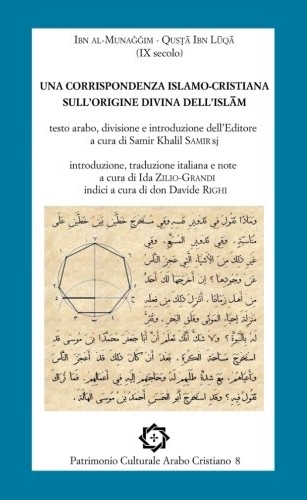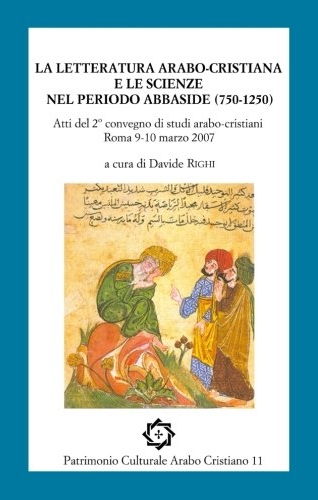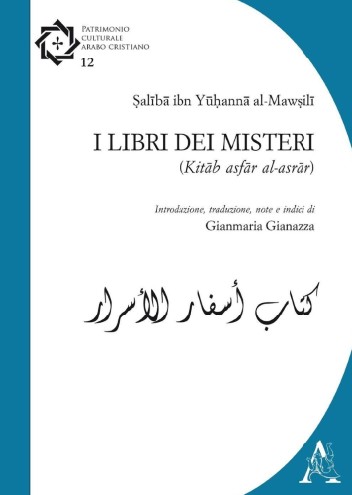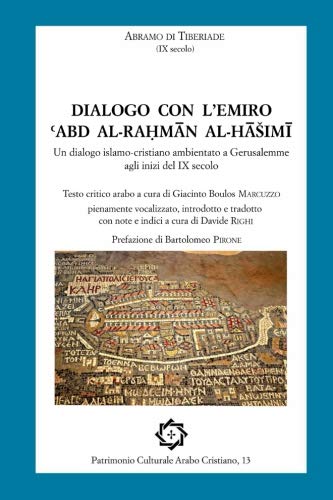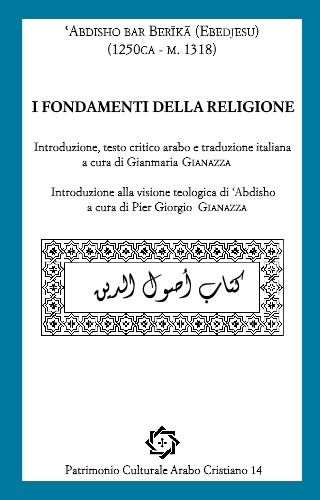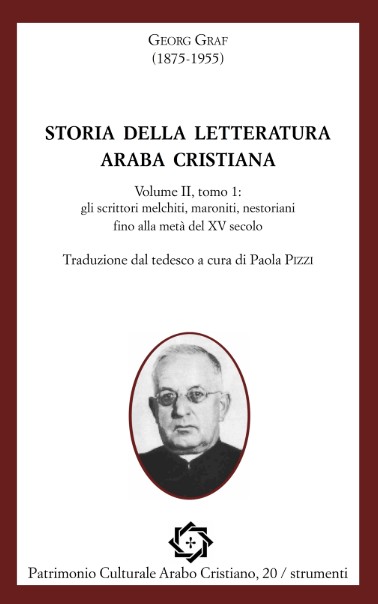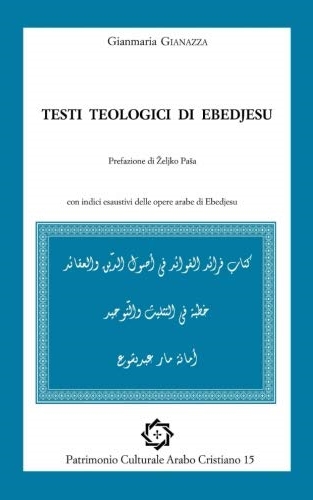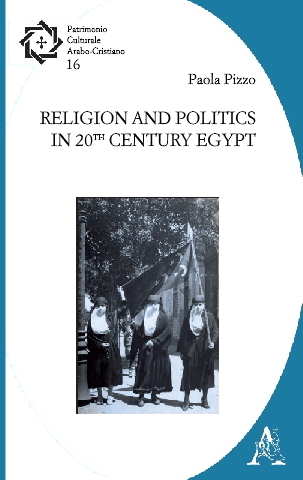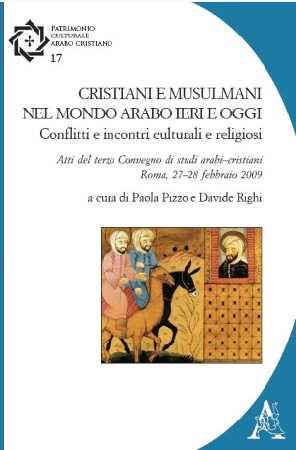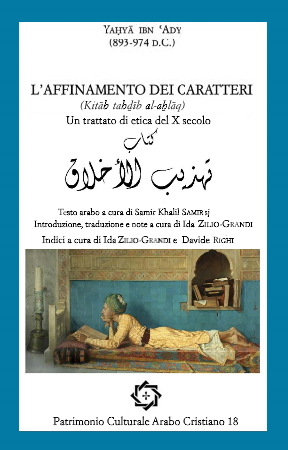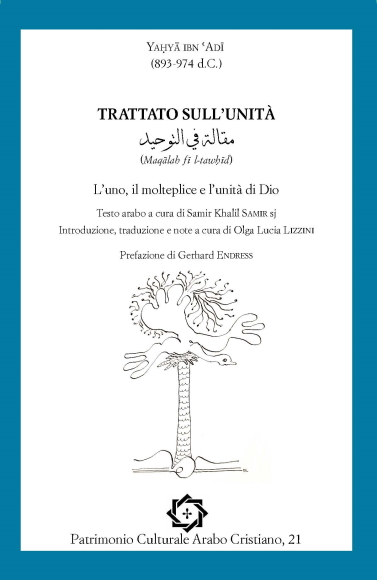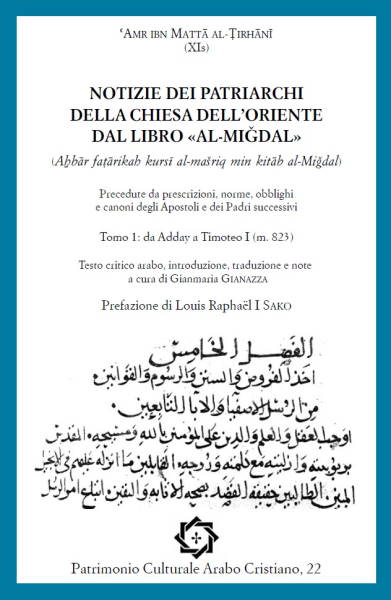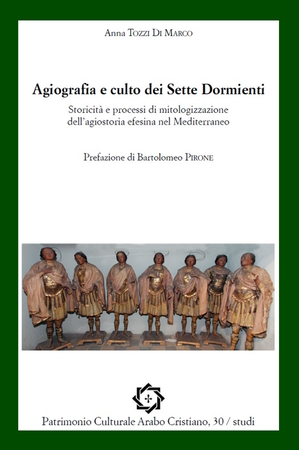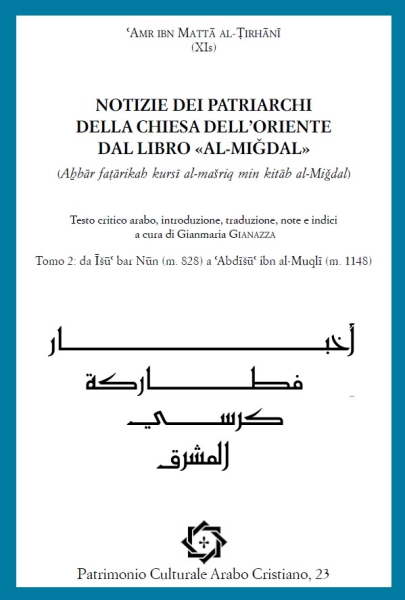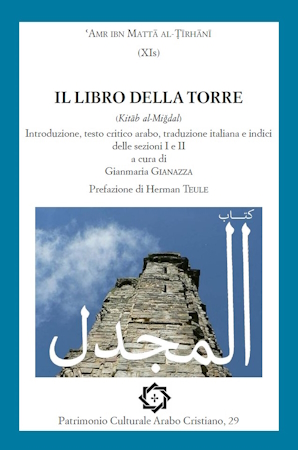Dānyāl ibn-al Ḥaṭṭāb al-Mārdīnī, I fondamenti della religione e la guarigione dei cuori dei credenti, «Kitāb Uṣūl al-Dīn wa-šifāʾ qulūb al-muʾminīn», studio, testo critico arabo, traduzione italiana, note e indici a cura di Mervat Kelli, Tomo 2.
Dānyāl ibn al-Ḥaṭṭāb al-Mārdīnī (1327-1386) was born in al-Ṣulḥ, near Mārdīn, and became a monk in Mārdīn in the Syrian Orthodox Church at the monastery of al-Nāṭif in 1347. He left Syria for Egypt and he devoted himself to the study of Syriac literature, philosophy and theology for seventeen years. He was ordained a priest in 1356 and returned to his former monastery in 1382 where in 1386 he wrote the Kitāb Uṣūl al-Dīn wa-šifāʾ qulūb al-muʾminīn, «The foundations of religion and the healing of the hearts of the faithful». This work could be defined as "a dogmatic and apologetic compendium of the fundamental doctrine of the Syrian Orthodox Church". It may have been written for the formation of disciples of his Church. It deals with Trinitarian theology, Christology, Mariology as well as responding to some controversies of Al-Mārdīnī’s time. It also touches on subjects that are still very topical, such as the existence of pain and evil. The author uses a simple, elegant and understandable philosophical, dialectical, rational and exegetical language. The text uses characters from the same Arab-Muslim environment of the time. From the text Al-Mārdīnī’s personality emerges: he is a man of dialogue, clear, scientific and orderly. He articulates his argument in progressive, convincing, verifiable points, so much so that subsequent writers have been able to adopt it as a reference text.
_con_logo_grac.jpg)


